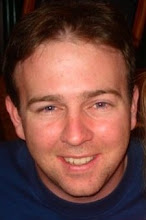Watched the documentary called ‘I Can Change Your Mind On
Climate Change’. It was followed
by a Q and A panel on the same topic.
It featured Anna Rose, co-founder of the Australian Youth Climate Coalition, and Nick Minchin, former coalition senator. Both participants
invited the other to speak to a selection of experts of their choice, in an
effort to convince them to change their mind. It was an interesting yet futile concept.
Rose would be considered an alarmist. She appealed to emotion very
often. Asking viewers to think
about future generations or those in third world countries. She wholly believes that the world will
end if we don’t act on climate change.
She is very naïve and idealistic.
Minchin is less emotive. He’s labelled a sceptic despite saying that he agrees that
the climate is changing. He takes
a common sense approach and is disappointed about the lack of a fair dinkum
debate that has long been stifled by a supposed consensus in the science.
The stifling of debate and alarmism over ‘the science’ seems
to have been counterproductive, the by-product being the growth of a dismissive
apathy from the general public.
This infuriates the alarmists, as they can’t stand the fact that there are
people who disagree with them.
Washington DC journalist, Marc Marano, disagreed with
her. But Anna wouldn’t engage in
discussion due to her assertion that Marano is involved in dodgy practices in
his efforts to discredit climate scientists. Her strongest defence was that Marano appeared to have links
to a certain tobacco mogul. Minchin later rightly pointed out that such a
defense was tenuous in that it had no direct bearing on the climate change
debate, much less Marano’s involvement in the same. There was no rebuttal from
Marc as the documentary moved on, although he appeared miffed at her
behaviour. Not surprising as it
was rude, childish and cowardly, and certainly not exemplary of the accepted
rules of civilized debate.
Anna’s uncle is a farmer near Moree. She took Nick there to hear his
views. To Anna it is land like
this for which she is fighting.
Her uncle reported that by his own measurements his land is warming - so
much so that he is planting his summer crops up to three weeks earlier than
usual. Anna would contend that
this is a sign that the science is true; that the earth is warming dangerously
and the world will cease to exist with inaction. Another view is that him planting crops earlier is a great
example of adapting to the already changing climate and that earlier crops may
mean more crops, or perhaps even a competitive edge in the agricultural market,
if there are other regions of the world requiring what he plants, when they’re
all waiting for their warmer season to arrive.
Both extremes were on display during the documentary and the
panel. On one end is the alarmism
view held by Anna Rose, although even she seemed not to be able to sustain such
a tiring stance. At the end of the documentary she stated, “the Science is
never 100%”. So the question is, can even she trust the zealous approach she
currently takes on climate change, when the data underneath her are turning on
a dime? Even Rose herself did not appear entirely set on her stance.
At the other end is dismissing that the climate is even
changing. Fortunately no one on the
panel held this view, as this would be to blatantly deny all the fluctuations
we have experienced since records began. Like most issues the truth might be
somewhere in the middle.
The documentary did manage to crystallise my views on this
issue. The climate is changing as
it always has. It is always active,
warming or cooling, currently warming (even though we remain in an ice age). Therefore causes of warming are mainly
natural with a small role played by human forces. The world will not end
through inaction but we ought to be good stewards of this planet by looking
towards alternate sources of power.
Nuclear should be considered if you’re serious about quitting coal. In the meantime other sources need to
be developed to make them cost competitive and capable of managing base load
power. Our economy should not be
harmed unnecessarily in the process.
Sensible decisions are needed - not emotion driven alarmism.




